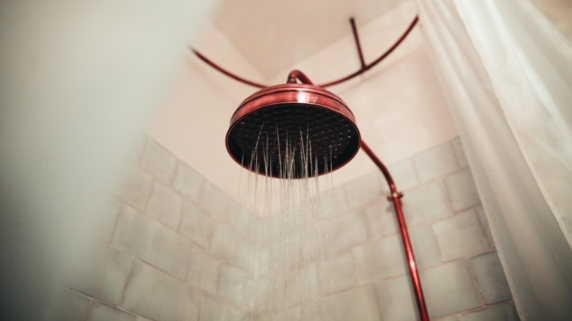RealtyCast Global #11: Real Estate Branding and Success, Kilian Rief’s Transatlantic Journey
Welcome to episode #11 of RealtyCast Global – a global connection to all things real estate, hosted by Hugh Gilliam, president of Global Property Pros.
Embarking on a journey from a small town in Germany to the bustling real estate scene of Atlanta, Killian Reif’s story is nothing short of inspirational. In this latest podcast episode of RealtyCast Global, listeners are treated to an in-depth look at Killian’s path to becoming a dominant figure in one of America’s most dynamic property markets. His narrative is rich with details of a dream ignited in youth, fanned by an early encounter with the real estate industry, and the relentless drive that pushed him across continents in pursuit of success and becoming a master at real estate branding.
Killian’s approach to establishing himself in an unfamiliar market was marked by personalized marketing strategies and the effective use of cold calling. These tools, which may seem traditional, were his arsenal in connecting with clients and setting himself apart in the competitive Atlanta market. His dedication to crafting relationships and his tenacity in facing rejection head-on were instrumental in his rise to the top. This tale is not only about his mastery of real estate but also serves as a blueprint for transforming ambition into tangible achievements.
Listeners gain valuable insights as the podcast delves into the challenges that Killian faced, including language barriers and the universal fear of rejection. His evolution from a greenhorn in the industry to a household name is a testament to the resilience required to make one’s mark in real estate. This episode is particularly valuable for real estate agents at all stages of their careers, as Killian shares strategies for overcoming obstacles and leveraging them as opportunities for growth.
A key highlight of the episode is the discussion on Atlanta’s luxury real estate marketing trends. Killian breaks down how inventory increases and longer selling times have affected the market, particularly in the one to five million dollar range. He emphasizes the critical role of internet marketing and social media platforms in reaching potential buyers. This segment is filled with actionable advice for agents, including the need to educate sellers on realistic pricing and the advantages of infusing one’s personality into property presentations.
In recounting his success story, Killian does not shy away from detailing the grunt work behind his achievements. From his meticulous planning of a “coming soon” campaign that led to a property selling $50,000 over asking price, to his use of video marketing that blends personal branding with property representation, his marketing finesse is evident. His experience on the national television show “Selling Atlanta” further underscores the effectiveness of his marketing approach, offering listeners a glimpse into the high-stakes world of luxury real estate.
As the podcast winds down, Killian shares a mix of professional advice and personal anecdotes. He talks about the satisfaction that comes from navigating a deal to its conclusion and the Zen he finds in riding his Harley Davidson, a metaphor for the balance one must strike in this fast-paced industry. Killian’s story, full of passion and persistence, serves as a compelling guide for anyone looking to carve out their niche in real estate.
In essence, this episode of RealtyCast Global is not just about real estate transactions; it’s a panoramic view of the strategies, personal growth, and mindset shifts that are crucial in shaping a successful career in the property market. It’s a story of transatlantic triumphs and the art of turning every setback into a setup for success. Whether you’re a seasoned professional or an aspiring agent, Killian’s insights offer a wealth of knowledge that can help navigate the ever-changing real estate waters with confidence and finesse.
For real estate agents looking to expand their business internationally, expose existing listings to a global pool of buyers, and connect with new clients, check out Global Property Pros.
For Property Buyers & Sellers seeking assistance in the international market, check out RealtyHive’s property marketing solutions.
SUBSCRIBE to the RealtyCast Podcast to be notified when new RealtyCast Global episodes air:
About the Guest – Kilian Rief:
Kilian Rief is a driven and ambitious real estate professional who embarked on a journey to pursue his dream of becoming a real estate broker in the United States. After graduating from the University of Regensburg in Bavaria Germany with a degree in real estate management, Kilian set his sights on America and landed in Atlanta to kickstart his career. With unwavering determination and a strong work ethic, he quickly made his mark in the real estate industry and ascended to the top of Atlanta’s competitive real estate market.
Kilian’s passion for connecting people with their ideal homes and his business acumen propelled him to success, establishing him as a top agent at Atlanta Communities Real Estate Brokerage. His commitment to excellence and client satisfaction has solidified his reputation as a go-to real estate professional in the region.
Residing in the vibrant community of Buckhead, he enjoys indulging in his passions outside of work. An avid golfer, Kilian finds relaxation and challenge on the golf course. His love for adventure takes him to various destinations around the world, as he is an enthusiastic traveler who values new experiences and cultural exploration. Furthermore, Kilian embraces the thrill of the open road by taking his Harley for exhilarating rides through the picturesque mountains, reveling in the freedom and beauty of nature.
Website: www.kilianrief.com
Phone: +1 (404) 655-9022 and +1 (404) 844-4977
Email: kili@kilianrief.com
Connect with Kilian on LinkedIn
About the host – Hugh Gilliam:
Hugh Gilliam co-owned a national transportation company, created a land development business, and worked as a general contractor in residential and commercial construction for over two decades. Hugh also co-founded an international distribution company and successfully negotiated and contracted with 135 sales representatives in the United States, Canada, France, Brazil, Japan, and the Netherlands.
Today, Mr. Gilliam is affiliated with RealtyHive, LLC where he serves as Director of International Real Estate and President of Global Property Pros. His duties include involvement in commercial and residential transactions, plus promoting marketing systems and lead generation platforms.
He is also co-founder of the luxury digital magazine, DOORWAYS INTERNATIONAL, powered by RealtyHive, which serves as a platform for Brokers and Buyers throughout 70 countries.
Hugh’s Designations Include:
- Certified Luxury Home Marketing Specialist
- Certified Distressed Property Export
- Certified International Property Specialist
- Certified International Investment & Immigration Specialist
- Transnational Referral Certification
Hugh’s Memberships Include:
- Georgia Association of REALTORS
- National Association of REALTORS
- International Real Estate Federation (FIABCI-USA)
- Asian Real Estate Association of America















